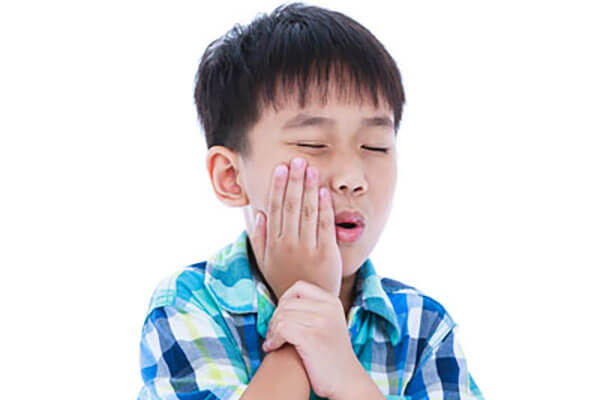Dental Emergencies in Clinton Township & Annandale, NJ

Dental emergencies can be just as scary for parents and caregivers as they are for children—that’s why when your child has a dental emergency, we give immediate attention to the situation. Give our office a call at 908-735-6300 and we will arrange to see you and your child as soon as possible. Our office is conveniently located in Annandale, NJ, within minutes of Clinton Township.
Unfortunately, pediatric dental emergencies aren’t limited to regular office hours. If your child needs emergency treatment when our office is closed, give us a call and listen to the instructions on the recorded message. We will return your call as soon as we are able. If your child is experiencing a serious or life threatening situation, call 911 right away or visit your nearest emergency room for treatment.
Below are instructions for handling some minor common dental emergencies.
In the case of a toothache...
Gently clean the area around the tooth by rinsing the mouth with warm water and gently flossing to remove any particles that may be lodged in the tissue around the tooth. If the pain continues, or if the area around the affected tooth is warm, please call our office to schedule an appointment.
If a lip, gum, cheek, or tongue gets cut...
Apply ice to help reduce swelling and apply pressure with a clean cloth or sterile gauze to stop any bleeding. If the bleeding continues, call your physician or visit your local emergency room.
If a baby tooth gets knocked out...
Please call our office to schedule an appointment.
If a permanent tooth gets knocked out...
Call our office right away and take these steps. 1) Do not touch the tooth root, but hold the tooth by the crown and gently rinse the tooth with water. 2) Place the tooth back into the socket as quickly as possible and bite down on clean gauze to hold it in place. 3) If the tooth cannot be placed in the socket, put the tooth in a small container of milk or saliva and bring it with you to your appointment.
If a tooth gets chipped or broken...
Gently rinse the area with lukewarm water and place a cold compress on the face to reduce swelling. If you can locate the piece of broken tooth, place the piece in milk, and bring it with you to the office. If more than half of the tooth is broken off, please call us immediately.
Frequently Asked Questions About Pediatric Dental Emergencies
What is a pediatric dental emergency?
A pediatric dental emergency can involve uncontrolled or prolonged bleeding, (facial) swelling, extreme pain, fractured teeth, and teeth that have been knocked out. We prioritize treating these cases, so please call our office right away so we can make room for your child in our schedule. Other situations which may or may not necessitate emergency dental care include damaged crowns, facial trauma, broken orthodontic devices, and restorations that have fallen out.
Can you fix a knocked out tooth?
When a primary (baby) tooth is knocked out, we don’t attempt to replace it. Instead, we either leave it as-is or place a space maintainer to ensure that there is room for the secondary (adult) tooth to erupt when it’s ready; this depends on the age of your child. If an adult tooth is knocked out, it can often be saved if you act quickly. Once we put the tooth back in the socket, it is stabilized to allow your child’s gums to reattach securely.
Can I take my child to the ER for tooth pain?
Emergency rooms aren’t ideal for treating children’s tooth pain—they don’t usually have dentists on staff and it can be a scary place for a small child. If pain is severe and our office isn’t open, you can call your child’s pediatrician for advice on pain management. If pain is accompanied by fatigue, trouble breathing, difficulty swallowing, or a fever, you should bring your child to the ER for treatment, as they may have a serious infection. Hospitals can treat the infection with oral antibiotics and help manage your child’s pain until the tooth can be taken care of.
How do I know if my child has an abscess?
The easiest way to identify a dental abscess is to look in your child’s mouth and see if you can find a pimple-like bump on the gums. This is an abscess. Other symptoms include severe pain, fever, swelling, difficulty chewing, throbbing, and a foul odor or taste in the mouth. Although a dental abscess may look like a harmless whitehead, it’s actually a sign of serious infection and it requires urgent dental care. An infected tooth can spread infection to other teeth, the gums and bone, the bloodstream, and even other parts of the body, which is why it’s so important to get treatment right away.